Top Tips for Exam Success

Getting ready for your exam revision? Let us help.
The Community Schools currently help over 150 students prepare for exam revision success. Here, briefly, are 10 top pieces of advice we share with parents and students on our Grade Booster Sessions.
1. Make an exam revision timetable
To succeed at anything you need a structured plan and the discipline to stick to it. The plan must be manageable and flexible so you can make changes as necessary. Just remember: flexibility is not an excuse to ‘study later.’
Work in 45 minute blocks. This is long enough to get into flow and short enough to avoid burnout. To make discipline easier, make sure everyone in the house is aware of the structured revision plan and why it’s so important.
2. Find a good place and switch off
To study effectively, you need a clean, clear, and organised space where you feel comfortable. Switch off ALL mobiles, computers and TVs that are non-essential for revision. Studies show even one small distraction can cost 11 minutes of good study.
3. Be at your best
Easily said, I know. But what time of the day do you work best? If you’re a morning bird, wake up and study. A night owl? Study at night.
4. Variety is the spice of life
Just like you do in school, change subjects after every study break. Why not also try different exam revision methods? Podcasts, videos, mind maps, posters, post-its, flash cards, quizzes etc. Be active in the revision and always summarise the key points so they’re easier to remember.
5. Practice makes perfect
Past exam papers are your friend. Study the questions of the past. Create your own mock tests under time pressure. The more you practice taking similar tests under the similar conditions, the less stress you’ll feel on the day.
6. Take a break and exercise
You already know you need to build breaks into your exam revision schedule, but why not make some of them exercise breaks? Science shows exercise boosts the brain’s activity, so it could make your study more effective – and more enjoyable.
7. Hydrate and eat well
Drink plenty of water. Dehydration makes you lose concentration. It also makes you sleepy.
Eat brain foods. Whole grains, fruit (particularly blueberries), oily fish and nuts are excellent brain boosters. Allow yourself the odd treat as a reward for good study.
8. Ask for help
Get family and friends to test you. Revise with friends from time to time. Attend exam revision sessions at school. For professional support, you might want to sign up for the Grade Booster Courses at the Community Schools.
9. Don’t panic
Expect to feel nervy. It’s normal. Some nerves help you perform.
10. Think positive
If you’ve prepared well, you’ll do well. Do the work, be confident, and succeed.
For more help and support Ofqual have produced a document with advice and guidance for students on how to cope with pressure associated with test and exam anxiety. Click here to download.
And if you would like to talk to us about how we can help with exam revision, or with study skills throughout the year at our weekly small group tuition sessions at centres across Suffolk please contact us. Click here to message us now.
Last Updated on November 18, 2020

Leave a Reply